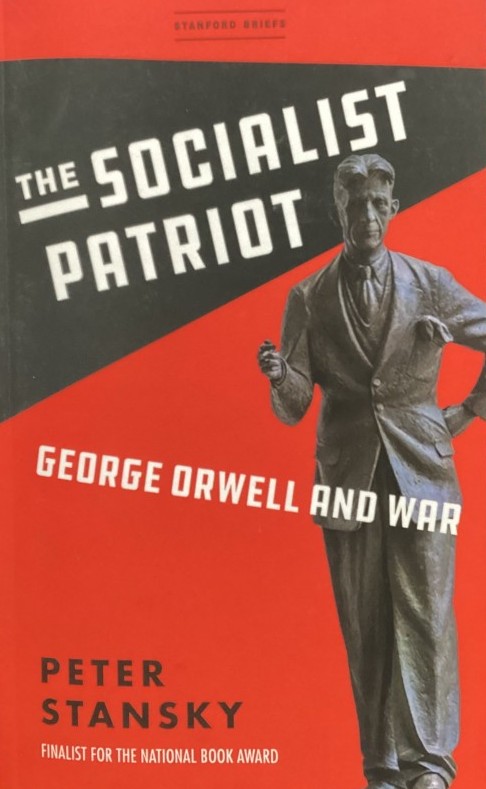Inspiring Older Readers
 posted on 09 Aug 2023
posted on 09 Aug 2023
The Socialist Patriot: George Orwell and War by Peter Stansky
Peter Stansky has a long and well-regarded pedigree when it comes to popular academic studies and critiques of George Orwell. Along with his writing colleague, William Abrahams, he uncovered the early years of Orwell in The Unknown Orwell and his evolution from Eric Blair to George Orwell in Orwell: The Transformation – so a new study by him is always worth exploring.
In many ways this is a modest book – just 130 pages or so – and for most Orwell devotees there isn’t too much here that will be new. It might just as well have been called it 'an introduction to the politics of George Orwell' rather that The Socialist Patriot because that is what, in effect, this is. Stansky does have a purpose here though – he wants to step into that febrile territory of claims on the political ownership of the Orwell name and work. In an attempt to explain how it is that both the Left and the Right claim Orwell for their particular camp, Stansky suggests the seeming contradiction can be resolved in the notion of the Socialist patriot. Orwell, he maintains, remained a Socialist with a hatred of totalitarianism (especially Soviet communism) but was, he believes, so deeply imbued with a patriotic love of an idealised, bucolic England that it shaped his notion of what Socialism should look like.
In recent years, others on the Left have also attempted to reclaim patriotism from what they see as the malignant grip of the Right – songwriter, performer and author, Billy Bragg is a good example of this and has written his own manifesto on this subject which he entitled The Progressive Patriot. In recent years it has been the rise of the new Right and the agenda of xenophobic nationalism that has driven some on the Left to rally around the idea of a more positive idea of patriotism based on community, collectivism and liberally progressive social agendas. But for Orwell, Stansky argues, the patriotic urge comes from two different sources, his school days and his experiences of war.
Ultimately, I would argue, Stansky’s central idea of the way the two World Wars, the Spanish Civil War and The Cold War shaped Orwell’s sometimes idiosyncratic idea of Socialism is built on pretty firm foundations and I couldn’t find much there to argue with. What this book does do more emphatically is to restate that Orwell always saw himself as a man of the Left, as a Socialist and that he saw the emergence of Soviet Communism as a threat to Socialism and not as some kind of vindication of the Conservative Right.
But, in truth, what I most enjoyed about this book wasn’t so much Stansky’s writing about Orwell but the introduction in which he writes about himself. He explains the roots of his fascination with Orwell, the origins of his relationship with Abrahams and there’s a carefully worded but undeniably waspish portrait of Sonia Orwell that emerges from these few short pages.
All Orwell obsessives will undoubtedly want a copy of this book and will, like me, gulp it down in a couple of sittings. Published by Stanford Books in paperback at an affordable price, under £10 will get you a copy, it is a nicely produced addition to the collection.
Terry Potter
August 2023